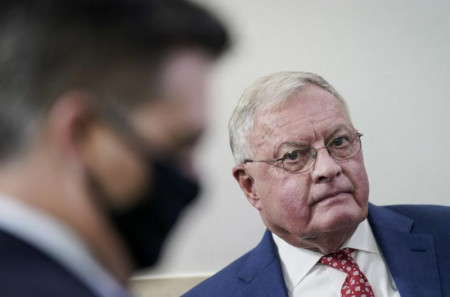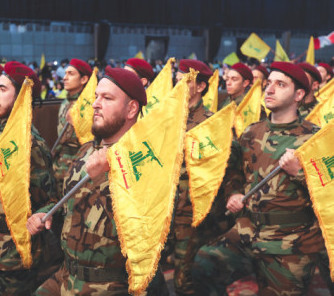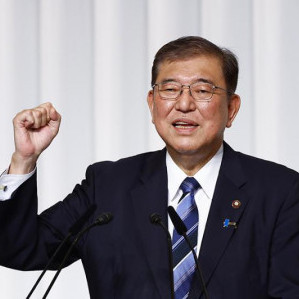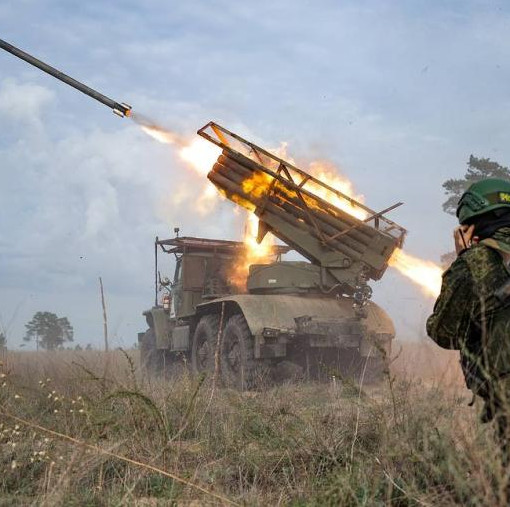
President-elect Donald Trump's Special Representative for Ukraine and Russia Keith Kellogg "plans to visit Kiev next month and would be open to meetings in Moscow if invited, as the incoming administration seeks to end the nearly three-year war," Bloomberg writes. Keith Kellogg, 80, is a retired army general who served in national security agencies during the first Trump administration.
He also plans to visit London, Paris, and Rome. According to a source cited by Bloomberg, Trump's envoy's trip to Europe "will be focused on gathering information rather than implementing any specific policy goal." On the other hand, his goal is pretty clear. "Kellogg will need to navigate explaining Trump’s strategy to world leaders eager to understand how the US approach to the conflict might change," Bloomberg points out in contradiction to its own previous maxim.
From all the vague and contradictory reports, the only clear thing is that Trump is in a hurry to start a peaceful dialogue with Moscow. What exactly he is going to persuade Moscow to do by Keith Kellogg’s proxy if the latter does end up here is still anyone’s guess. Perhaps by demonstrating his "will for peace" Trump is seeking to convince Kremlin to enter into negotiations.
Over the past weeks, Trump pledged to arm Ukraine enough to force Russian President Vladimir Putin to start negotiations, while condemning performance of President Joe Biden, who allowed Kiev to fire American missiles at Russia, calling it a dangerous escalation. The new US leader also threatened to cut off aid to Ukraine if it did not seek an agreement, making it clear that he expected Zelensky to "embrace some territorial concessions in exchange for peace."
Most likely, the ultimate goal of the American establishment and Trump, who are acting in concert in this particular instance, is to stop the conflict and leave the United States in control of most of Ukraine for at least two reasons. First, the remaining territory of even "non-aligned" Ukraine will de facto serve as a springboard for Washington to exert military pressure on Russia, which is never going to be taken off from the table. Overpowering Russia in one way or another has long been the American deep state’s imperative.
Secondly, Ukraine is a country rich in natural resources. The most conservative estimates say their abundance accounts for $26 trillion. That is, the States simply want to make a capital on other nation’s wealth. The Washington Post recently published an article under a truly cynical headline "Does Trump want Putin to get Ukraine’s $26 trillion in gas and minerals?" The newspaper writes that "Ukraine is not only the breadbasket of Europe; it is also a mineral superpower, with some of the largest reserves of 117 of the 120 most widely used minerals in the world." It possesses 22 of the 50 strategic minerals identified by the United States as critical to its economy and national security. Many of them are "quite rare yet key to certain high-value applications."
"Ukraine possesses the largest reserves of uranium in Europe; the second-largest reserves of iron ore, titanium and manganese; and the third-largest reserves of shale gas — as well as large deposits of lithium, graphite and rare earth metals," The Washington Post writes, citing data from a report by the Canadian SecDev company engaged in analyzing geopolitical risks.
So, by leaving the situation in Ukraine as it is, with the Russian army’s ongoing trend of advancing westwards, the United States risks losing all of Ukraine, for which read a future aggression springboard against Russia, and all the riches of the its subsoil. We deem this the very reason for Trump's haste.
Zelensky poses a certain problem for Trump, since it is not clear to the new US president’s team to what lengths the former is ready to go in his unappealable demand not to cede territories Moscow currently controls. To make the American task easier, Zelensky must publicly agree with Trump's proposals so as not to make a fool of the US president with his statements about "not giving up an inch of land." And that's exactly what retired Gen. Kellogg seems to be willing to achieve in Kiev.
As for European capitals, Trump's task concerns creating and sending a joint NATO peacekeeping force to Ukraine in case of a cease-fire or a peace agreement. The idea’s author is undoubtedly the American deep state, with its stooge and puppet French President Macron appointed and serving as "project manager". It is on behalf of Macron and under his flag that the United States is leading the process of creating this "peacekeeping force", or rather an occupational contingent that will have to stake out the rest of Ukraine for the United States.
Reuters writes that Macron-led negotiations are at an early stage but have revealed disagreements about the possible goals and mandate of such a mission and even about the current relevancy of the issue. Forming a European military contingent for Ukraine seems the Kellogg mission’s key objective in European capitals. Because without a NATO force there, all the issues of control over Ukraine make no sense to the United States. Under the pretext of "preserving peace", an occupational regime should be established there to avert any Russian influence on the territory.
This is exactly how the United States operates in Kosovo, where, after the region’s illegal separation from Serbia, the powerful American military base Camp Bondsteel was established within a very short time. Formally, it is part of the KFOR international peacekeeping mission in Kosovo, but in fact, the Camp Bondsteel base contingent is used to control the entire military environment in the Western Balkans. And now the US is seeking to apply the same practice in Ukraine.
If Keith Kellogg is invited to Moscow, he will certainly talk about a "peace deal", "democracy", and "consideration for all the parties." It will be a performance, with its purpose described above; a seductive wail of sirens, if you refer to ancient Greek mythology.
Russia does not need a cease-fire "deal" as it has repeatedly expressed its stance on conditions for sitting down at the table. Russia needs a long-term and lasting peace in Ukraine, not a truce, President Vladimir Putin stated on December 19 during his combined Q&A session and press conference. "We do not need a truce, we need peace, long-term, secured by guarantees for the Russian Federation and its citizens. How to ensure those is a tough question. But in general, one may search for them," Putin said.
What follows from this? Russia does not reject dialogue feasibility with Washington. Neither it wants to waste time on fruitless meetings for the sake of someone in the United States gaining political points.









